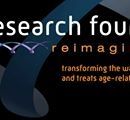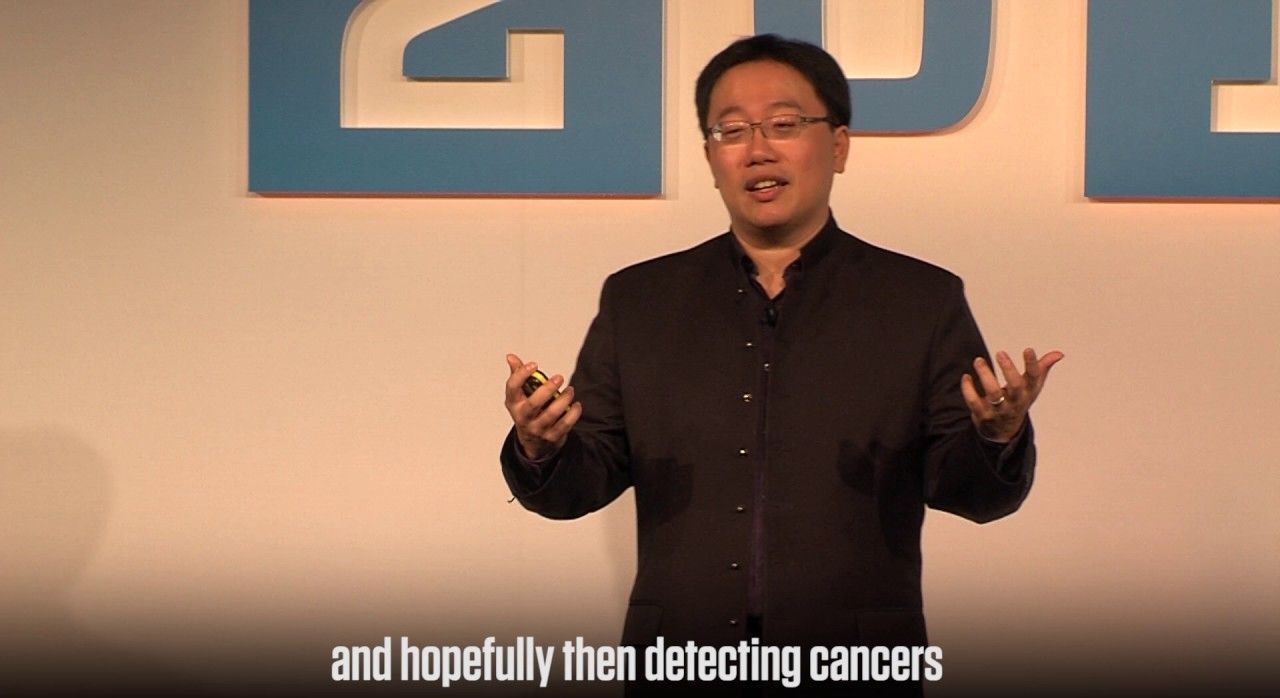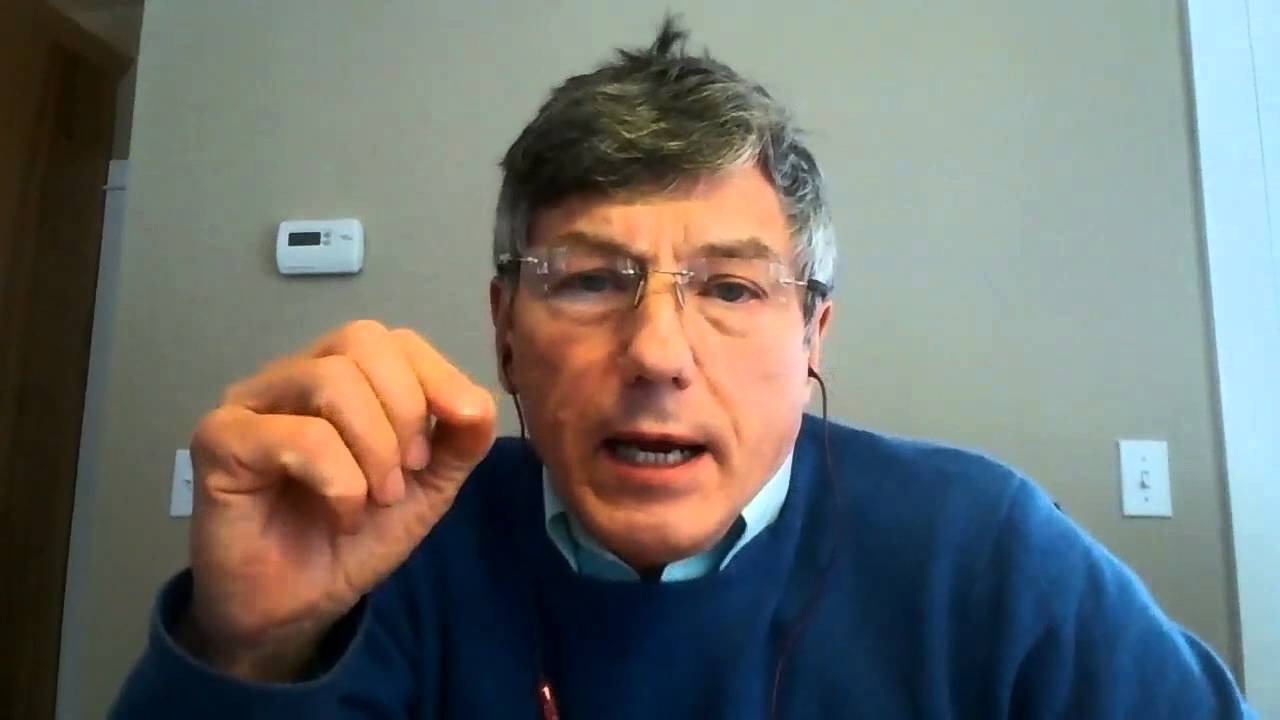Senescent cells once again implicated in the aging process this time in increased viral replication rates.
Kim JA, et al. Immune Netw. 2016 Oct;16:286-295. https://doi.org/10.4110/in.2016.16.5.286


This was a huge step forward for rejuvenation biotechnology earlier this year. Synthetic glucosepane can now be created on demand in the lab thanks to SENS research foundation and the work at Yale it is funding. Glucosepane is thought to be involved in hypertension and diabetes and so this research has important implications for these diseases as well as aging in general.
At Yale, we’re funding Dr. Spiegel’s essential work to characterise the molecular crosslink glucosepane, which stiffens blood vessels and skin as we age.

“Cancer is a disease of ageing,” Lin, geneticist and president of the Rare Genomics Institute, told the audience at WIRED2016. The World Health Organisation estimates there are about 14 million new cases of cancer every year, and predicts that figure will double by 2050. Currently, eight million people are killed every year by the disease.
By combining early intervention with an understanding of cancer genomics, however, mankind could be on the cusp of fighting cancer effectively and at scale. “We are at the intersection of three of the most exciting revolutions in cancer therapy,” Lin said.

Come “ask me anything” right now!!! I’m trying to answer all questions I get asked:
Hi Reddit,
Thank you for having me here. My name is Zoltan Istvan, and I’m a futurist, journalist, and science fiction writer. I’m also the 2016 Presidential candidate for the Transhumanist Party.
For the last 725 days, I have been campaigning full time to spread transhumanism and life extension policies across America and the world. While I never expected to win the US Presidency, my campaign has received a lot of attention—both good and bad—for its emphasis on radical science, technology, secularism, and futurist ideas.
During my campaign, I’ve spoken on transhumanism at the World Bank, consulted with the US Navy on artificial intelligence, got a chip implanted in my hand, interviewed with underground group Anonymous, and drove a coffin-shaped bus called the Immortality Bus across America to deliver a Transhumanist Bill of Rights to the US Capitol. My 20-point political platform has many futurist policies in it, but some of the most important ones are supporting a Universal Basic Income, classifying aging as a disease, legalizing all drugs, creating a Transhumanist Olympics, and taking money from the military and giving it to science.

Aging leads to diseases and ultimately death. Time for people to ditch the semantics and recognise that aging and disease are not two mysterious independent processes but are in fact one and the same.
Aging leads to the diseases of aging and the discussion is largely a matter of semantics.
“The concept of aging is undergoing a rapid transformation in medicine. The question has long been asked: Is aging a natural process that should be accepted as inevitable, or is it pathologic, a disease that should be prevented and treated? For the vast majority of medicine’s history, the former position was considered a self-evident truth. So futile was any attempt to resist the ravages of aging that the matter was relegated to works of fantasy and fiction. But today, the biomedical community is rethinking its answer to this question.
The controversy has been fanned, to a great extent, by one Aubrey de Grey, a Cambridge University–trained computer scientist and a self-taught biologist and gerontologist. Over the past decade, de Grey has undertaken an energetic campaign to reframe aging as a pathologic process, one that merits the same level of attention as, say, cancer or diabetes.”
#aging #sens

Science is making progress on the treatment of aging and age-releated diseases but should you rush out and start your own testing or not? This article weighs up some of the pros and cons.
Senescent cells accumulate with age, and secrete an unfortunate combination of signals that harms organs and tissues in numerous ways, such as via the production of increased chronic inflammation. This is one of the root causes of aging and age-related disease. Safe and effective clearance of senescent cells has been on the SENS rejuvenation biotechnology agenda for fifteen years, but only recently has progress in scientific funding and demonstrations of improved health and life spans in mice snowballed to the point at which startup companies could make a real go of it. Things are moving fairly rapidly in this field now. With the recent $116 million venture investment in UNITY Biotechnology’s work on senescent cell clearance, and other companies angling for their own launch, it is fair to say that this line of research and development is underway for real. Clinical trials of senescent cell clearance will be underway soon, funded by UNITY Biotechnology, and using drug candidates such as navitoclax developed in the cancer research community, noted for their ability to induce apoptosis, a form of programmed cell death. Senescent cells are primed for apoptosis, and it takes little to tip them over the edge in comparison to a normal somatic cell, which means that there may well be quite a large stable of existing drugs that will have some useful effect.
The question here is one that is only now starting to be useful to ask: should we all be running out today to obtain and take a drug (such as navitoclax) or drug combination (such as dasatinib and quercetin) that were shown to clear some fraction of senescent cells in rodents? Certainly there have been no shortage of people chasing after whatever the current hype of the day was in past years; I’m sure you all recall resveratrol and other alleged calorie restriction mimetics or telomere length enhancers. All a waste of time and effort. The difference between the science behind those and the science between senescent cell clearance is considerable, however. The items of the past have all been associated with altering metabolism so as to modestly slow aging, at best, and we have the very good examples of calorie restriction and exercise to show us the immediate bounds of the plausible on that front in our species.

Bioquark Inc. (www.bioquark.com) Interview in MoneyWeek
Read whole story: http://moneyweek.com/who-wants-to-live-forever/

Rattling around inside a hard drive doesn’t sound like an awful lot of fun — but then, neither does death.
Both eventualities are rather difficult to imagine, but we’ll all have to give them some thought sooner rather than later. Neuroscientist and neuroengineer Randal Koene thinks it’s only going to be another 10 years before we replace parts of the brain with prosthetics.
From there, it’s just a matter of replacing each region systematically, to end up with someone whose brain is immortal and electronic. Could the last person to die have already been born?


https://www.singularityweblog.com/mic…
Dr. Michael Fossel is one of those few theoreticians who can see much of the big picture of aging. While some use mostly guesswork, and others hope to improve on that with logic, Fossel never shies away from the clear verdict that only data can give. Add his overwhelming compassion as a human being and you will understand why he is a clinician who really cares. You will also get a pretty good idea of what kind of a person Michael is – both personally and professionally. And those are just some of the reasons why enjoy having him back on my Singularity 1on1 podcast for an in-depth discussion of his latest book on the topic titled the Telomerase Revolution.
During our 83 min discussion with Dr. Fossel we cover a variety of interesting topics such as: what the Telomerase Revolution is all about; the difference between realist and optimist medicine; why books don’t cure diseases and why Fossel is more interested in curing rather than understanding aging; the telomere theory of aging; whether we can create a vaccine for old age; the difference between direct and indirect aging; why guesswork is useless, logic is better but data trumps everything; whether we can slow down and/or reverse aging; Liz Parrish’s telomere lengthening experiment; reaching Longevity Escape Velocity and why Aubrey de Grey may turn out to be conservative in his estimate; Fossel’s biotech startup company Telocyte…